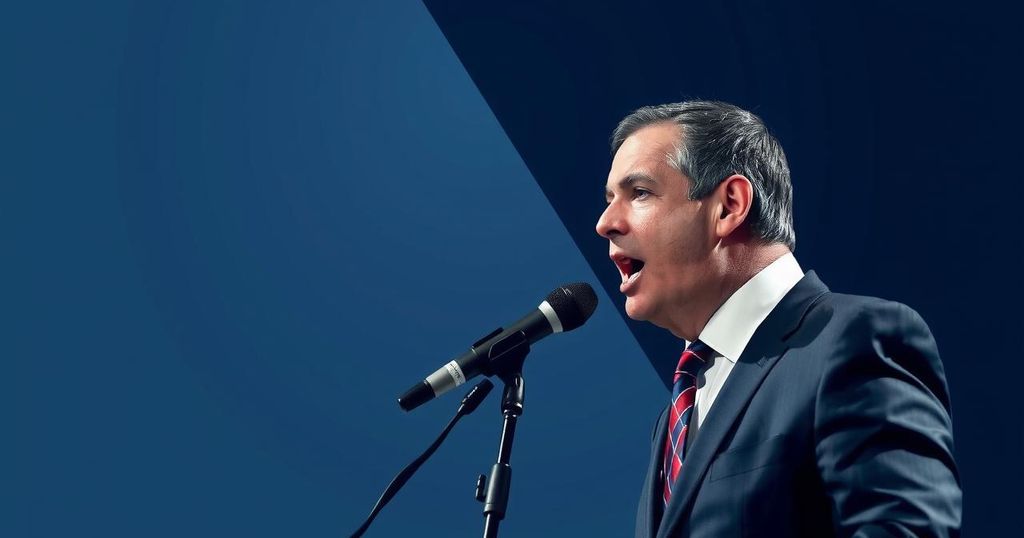Álvaro Delgado conceded defeat to Yamandú Orsi in Uruguay’s presidential runoff. Orsi, representing the center-left Broad Front, secured a narrow victory amidst ongoing vote counting. This election marks a return of the left after the brief rule of conservatives. Orsi’s agenda seeks moderate changes while addressing poverty and crime without radical shifts. The election reflects a global trend of voters demanding change post-pandemic.
In a closely contested presidential runoff in Uruguay, Álvaro Delgado, the conservative candidate and outgoing government representative, conceded defeat to center-left challenger Yamandú Orsi as the vote count was still ongoing. With approximately 57 percent of the votes counted, Orsi, backed by the Broad Front, secured 784,523 votes compared to Delgado’s 771,434. Delgado expressed his acknowledgment of Orsi’s victory, stating, “with sadness, but without guilt, we can congratulate the winner.”
Orsi’s victory signifies a shift in Uruguay’s political landscape, ending the right-leaning governance that began with President Luis Lacalle Pou in 2020, which interrupted 15 years of Broad Front administration known for landmark social reforms like the legalization of abortion and same-sex marriage. Despite being a moderate, Orsi’s platform maintains a combination of market-friendly policies and welfare programs reminiscent of the previous Broad Front governance.
Former President Luis Lacalle Pou has conveyed his readiness to facilitate the transition, affirming from his social media platform, “I called Yamandú Orsi to congratulate him as President-elect of our country.” The elections reflect a broader global trend of voters demanding change from incumbent parties amid post-pandemic economic challenges. Despite the shift, Orsi’s approach focuses on cooperation, advocating for tackling childhood poverty and organized crime without drastic ideological shifts.
This election reveals sentiments from disillusioned voters, reflecting dissatisfaction with the incumbent government as evidenced by waning economic growth and rising crime rates. Both candidates aimed to appeal to undecided voters but struggled to invigorate younger demographics. After the results were announced, Delgado emphasized the necessity of national unity, stating his intention to discuss collaboration with Orsi, while Orsi termed the electoral process an “incredible experience.” The political stability of Uruguay is highlighted by the responsible conduct of both candidates throughout the elections.
The recent presidential elections in Uruguay marked a significant political transition as the country navigated its recovery from the economic impacts of the COVID-19 pandemic. Historically, Uruguay has been characterized by political stability and a commitment to democratic values. The previous administration under the Broad Front achieved notable advancements in social policies, which contributed to its popularity. The shift in power from the conservative coalition back to the Broad Front reflects a reevaluation of policies and public sentiment within a global context where many countries are witnessing shifts in governance due to dissatisfaction with ruling parties. This election cycle is particularly emblematic of voters’ desires for reform amid persistent economic challenges.
The concession by Álvaro Delgado to Yamandú Orsi marks a significant political transition in Uruguay, emphasizing a return to the Broad Front after a brief conservative governance. Orsi’s moderate stance and commitment to maintaining key welfare programs signal a continuity of stable, progressive policies established in prior years. This election underscores a regional pattern of voters seeking change amid difficult economic conditions, while the collaborative tone set by both candidates may foster political unity in the face of forthcoming challenges.
Original Source: www.pbs.org







